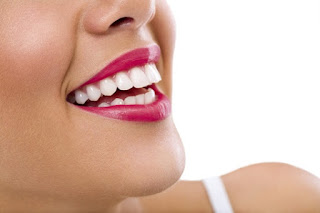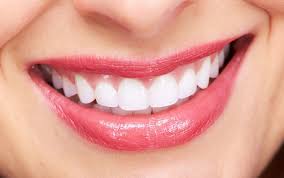How to Identify If You’re Grinding Your Teeth at Night in Dubai
- Get link
- X
- Other Apps
Teeth Grinding, also known as bruxism, is a common problem that can lead to various dental issues if left unaddressed. Many people are unaware that they grind their teeth at night, as it often occurs during sleep. This article will guide you on how to identify if you are grinding your teeth at night and what steps to take in Dubai for effective management.
Understanding Teeth Grinding:
Teeth grinding typically occurs unconsciously and can be caused by various factors, including stress, anxiety, misaligned teeth, or sleep disorders. Knowing the signs can help you take proactive steps to protect your dental health.
Common Signs of Teeth Grinding:
Worn Teeth: One of the most noticeable signs of bruxism is the wearing down of the teeth. If you notice flattening, chipping, or increased sensitivity, it may be time to consult a dentist.
Jaw Pain or Discomfort: Many people experience pain or tenderness in the jaw muscles, particularly upon waking. This discomfort can also extend to the neck and shoulders.
Headaches: Frequent headaches, especially tension headaches, can be a symptom of nighttime teeth grinding. If you wake up with a headache, bruxism may be the culprit.
Earache: Although the pain is felt in the ears, it is often caused by muscle tension related to teeth grinding. This discomfort can mimic ear infections, making it important to assess dental health.
Sleep Disturbances: If your partner reports that you make grinding noises during sleep or experience restlessness, you might be grinding your teeth.
Self-Assessment Techniques:
Monitor Your Symptoms: Keep a journal of any discomfort you experience upon waking. Note any jaw pain, headaches, or worn-down teeth. This log can be helpful for discussions with your dentist.
Ask Your Partner: If you share a bed, ask your partner if they have noticed any grinding sounds during the night. Their observations can provide valuable insights.
Feeling Tired: If you consistently feel tired upon waking, it might be due to disturbed sleep patterns from teeth grinding. This fatigue can be linked to poor sleep quality.
Professional Evaluation:
If you suspect that you may be grinding your teeth at night, it is essential to seek a professional evaluation. Dentists in Dubai can offer comprehensive assessments to confirm bruxism and its severity.
Dental Examination:
A dental professional will conduct a thorough examination of your teeth and jaw. This assessment may include:
- Visual Inspection: The dentist will look for signs of wear on your teeth, such as flattening or cracking.
- Bite Analysis: They may assess how your teeth align when you bite down, identifying any misalignments that could contribute to grinding.
- X-rays: In some cases, X-rays may be necessary to evaluate the condition of your jaw and teeth further.
Consultation and Treatment Options:
Once a diagnosis is made, your dentist will discuss treatment options tailored to your needs. Common treatments include:
Custom Mouth Guards: A custom-fitted mouth guard can protect your teeth from the damaging effects of grinding. These guards are comfortable to wear and are specifically designed for your mouth.
Stress Management Techniques: Since stress is a common trigger for bruxism, your dentist may recommend relaxation techniques or refer you to a mental health professional for additional support.
Orthodontic Treatment: If teeth misalignment contributes to grinding, orthodontic solutions may be necessary to correct the issue.
Medications: In some cases, medication may be prescribed to relax the jaw muscles or reduce anxiety.
Lifestyle Changes to Consider:
In addition to professional treatment, certain lifestyle changes can help reduce the likelihood of grinding your teeth at night.
Stress Reduction Techniques:
- Mindfulness and Meditation: Practicing mindfulness can help manage stress levels, which may reduce the urge to grind your teeth.
- Regular Exercise: Engaging in physical activity can be an excellent way to relieve tension and stress.
- Adequate Sleep: Prioritize good sleep hygiene to improve overall sleep quality. This includes creating a calming bedtime routine and ensuring your sleep environment is comfortable.
Dietary Adjustments:
- Avoid Stimulants: Limit caffeine and sugar intake, especially in the evening, as these can increase anxiety levels and disrupt sleep.
- Stay Hydrated: Drinking plenty of water can help reduce muscle tension and discomfort.
Conclusion:
Identifying if you are grinding your teeth at night requires awareness of the signs and symptoms. If you suspect that bruxism may be affecting your dental health, it is crucial to consult a dental professional in Dubai. Through proper assessment and tailored treatment options, you can effectively manage teeth grinding and protect your smile for years to come. Implementing lifestyle changes and stress management techniques can further enhance your overall well-being and contribute to a healthier, more restful sleep.
- Get link
- X
- Other Apps



Comments
Post a Comment